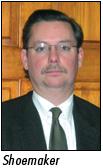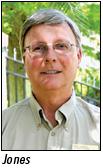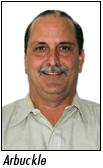“Equipment, chemicals, etc., play a huge part in our laundry’s success, but our most important asset is our people. We have to work well as a team. In what ways can I improve my team-building skills and learn how to spot trouble that could drag down staff morale and curtail production?”
Textile/Uniform Rental: John Shoemaker, General Linen & Uniform Service, Detroit, Mich.
One of the great things that should be done is having a weekly staff meeting. First of all, “weekly” staff meetings don’t happen 52 times a year. You have seven major holidays, vacations, some passes around budgeting time, and a few high-profile customer plant visits that take precedent.

The facilitator needs to make sure he/she is in charge to prevent a donnybrook amongst the pugilists defending their home turf. This open forum often leads to every member of the group seeing others’ needs, and makes for a more palatable final resolution. This helps with morale.
Another wonderful idea is having “inside/outside” days. Have the plant supervisor ride a route that is having problems with a plant-related issue. Have a district service manager sort the route that has faded garments labels. This will lead to constructive criticism rather than finger pointing. The DSM will now say, “You are right, these labels are too hard to read, and it needs to be addressed” rather than “The stupid plant is mis-tying all of my garments and screwing things up.”
When you are facilitating such meetings, you can see the benefits. Trouble spots will emerge before you, allowing a more cohesive team-building effort in which everyone has buy-in and is rooting for the success of the team.
Hotel/Motel/Resort Laundry: Phil Jones, Sheraton Vistana Resort, Orlando, Fla.
There are several ways to improve your team-building skills. One is by challenging yourself to read at least one new book per month. I always choose a book by a successful leader in some field such as business or sports. You will find valuable pieces of information on how to build and maintain a team from those who have done it. Try to take away at least one or two principles from each book.

We make our associates feel like they are business owners with an equal say in the operation, and have open discussions in our morning meetings on how processes are working.
Another way to improve team-building skills is to benchmark with other organizations that have successful teams. We take our management team on field trips to visit other laundries or some of our vendors to see teamwork in action. It is one thing to talk about how teams operate, but it is quite another to see it up close.
Just as I take one or two principles from the books I read, I ask my team to do the same after our visits. They are responsible for coming up with suggestions for improving our team and then implementing those changes.
Holding regular team meetings is an important way to gauge if trouble is brewing within your organization. A change in the level of engagement during meetings can be an indicator that something is off-center.
Your team becomes quieter or doesn’t respond the same way as in the past may be a warning sign. If your team has gotten quieter or doesn’t respond in the same way it has been, that may be a warning sign. If your team no longer asks questions or makes suggestions during the meetings, or there are side conversations going on, those could be signs of unrest that you need to address quickly. There is nothing wrong with openly asking what’s going on and what you can do.
Equipment/Supplies Distribution: Russ Arbuckle, Wholesale Commercial Laundry Equipment SE, Southside, Ala.
As in any labor-intensive endeavor, your people play a key role in just about every aspect of your successful business. In most cases, there will be many different types of people, personalities and even cultures. Blending this potpourri into a productive, cohesive unit is, in my mind, one of the most difficult business tasks.

Building a successful team is not something that can just be learned from a book.
Understanding the individuals and how each meshes with other team members is critical to maintaining morale and, subsequently, production.
It is important for human resources, supervisory staff and even owners to understand the individuals who make up the team. They need to be aware of things that can create dissension.
Understanding the personalities can make it easier to determine which are right for which tasks and put like-minded individuals together on specific jobs.
Management must be vigilant in watching for signs of tension, or even hostility, among team members. These signs can come in many forms, and it is up to you and your staff to learn to recognize them early on so that you can intervene immediately.
By not allowing these tensions to fester, your chances of “keeping the peace” and preventing loss of production are much greater.
Promoting team spirit helps to keep personalities cohesive as they all strive toward the same goals. Defining these goals, as well as introducing direct benefits for achieving them, helps to keep the spirit alive and well.
Click here for Part 1.
Click here for Part 2.
Have a question or comment? E-mail our editor Matt Poe at [email protected].
